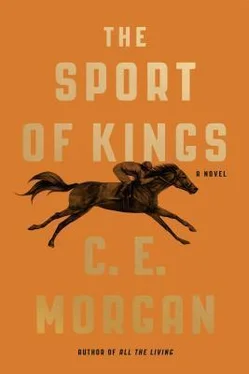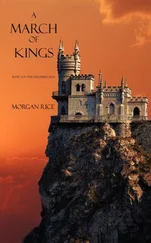— CHARLES DARWIN, On the Origin of Species
Again, they came out of Albemarle and Fauquier and Orange with spinning wheels and flintlock rifles strapped to mules and mares, a cavalcade over the folded Blue Ridge and smoky Shenandoah, fording countless streams until they arrived at the disputatious Clinch with its currents of cuss and complaint, then slept their wolf-encircled sleep and resumed their trek along the path of empire until they reached the midmark block house, where behind them teased two roads back to Prince Edward and Carolina, where proper cabins awaited with dogtrots and puncheoned floors, also ordinaries and steepled chapels and girls in laced corsets, whom they forsook for Indian Country across Clinch Mountain, Big Moccasin Gap, Powell Mountain, seemingly minor foes before this power of great white mountains insurmountable but for a high gap, the Gateway, which led to more and more earth, more rived ridges and black recesses, and ultimately the Kentuck, where the Indians and wolves were rivals for scalps, where the pack animals began to droop and die with Pine Mountain finally in view, where the men ate without benefit of fire until they passed through the virgin forest, through the outlying knobs to meadows of herbage and buffalo grass under pigeons in their thunderous passage over the Rock Castle River, where they decided to walk to the caneland in the north, where they tamed the grassland and timbered the chestnut and hemlock, plucked stones out of the earth for fencing, fired soil to brick, raised up houses out of the old growth while their cattle cropped the meadows, and after they became rich as Boaz on the fatling land, built a church of blue ash on a windy upland slope and christened the place Cane Ridge, where, when the old century spilled into the trammeled new, sinners trickled down from Ohio, up from Tennessee, and from all over the new state, where preachers ascended platforms, proclaiming Christ to the conquerors, who had traded their buckskin and coon caps for brooches and prunella, capes and velvet mantles, all converted now, faces to the bloody soil, trading earth for sky as they once traded baubles for earth, forgiven surely their success, jerking and calling with abandon, unrestrained now, the crowds pulsing and babbling as if carousal could render fool’s fat from the hard bones of history—
No. The old language is dead, as is Henry’s daughter, who lies in that storied tabernacle built on the ridge, where the cane once grew thick. In the shadowy reserve of the room under the old slave gallery, Henry senses an astonishing light beyond the log structure with its surrounding stone shrine, but looks away from the open doors. He hasn’t been able to bear the light these last two weeks — two endless, unendurable weeks. The funeral was delayed, because Judith requested time to return from her home in Bavaria, and because the confounding, surviving infant — his daughter’s son, his own blood — required a week in incubation. But Henry waited, most of all, because his grief was beyond the capacity of his flesh.
Now he could hear them: all the people filing into the church, the clacking of smartly shined shoes; he could hear their averted eyes. Yes, it was right that they should come; he wanted every house to be present. Fill the pews, pay their dues! He managed one look around at the subdued figures, but their somber faces, even their expensive black garments all seemed an affront to the reality of death. The very fact of their living offended him.
Now the pastor’s gentle hand was on his shoulder, now they were on the casket, and Henry’s stony calm was swamped for a moment by panic— Don’t do this! Please don’t do this thing! — but the words just echoed in the hollow of his mind, which seemed now like nothing but an antechamber for death — and then the lid was raised. He heard Judith cry out behind him, a sound of despair and recrimination. He wanted to stand up and say I didn’t kill her, I wasn’t the father! But the child in him was not so sure.
God, look at her face. In two weeks death had made no inroads, done no damage at all. Man truly is the measure and maker of all things, Child Henry thought wildly. Even industrious death is no match for his craftiness! His daughter appeared perfect and untouched, her hair lustrous, some blush color enduring on her cheeks and lips. She’d even assumed a restless beauty in her two weeks of tiresome solitude, time spent wandering aimlessly over the dark, purling river and under the tree of dreams, as if at any moment, she would rise with her innate disdain and dismiss them all with a withering glance and a flick of her hand. Then she would look Henry deeply in the eye, and he would know that all this suffering had been unnecessary, just a sickening dream. And he would forget it. Yes. There could be no greater prize on earth than to forget one’s suffering.
Once the lid was raised and the fact of Henrietta’s death made indisputable, the pastor slowly ascended the three wooden steps to the dais and regarded the familiar, monied crowd with a solemn, mild eye, one that had learned calm in the face of disaster over the course of a long career. When he intoned quietly, “We have lost a member of the Paris community, Henrietta Forge, the daughter of Judith Schwebel and Henry Forge,” Henry started visibly in his pew. He retightened the fold of his hands.
“When I asked Henry how he wanted his daughter to be remembered, the first thing he said was that we should remember her as a good horsewoman.” The room smiled; it shifted and relaxed. “I’m told she was capable in the saddle, capable on the track, capable as the manager at Forge Run Farm. As Henry will be the first to tell you, his nickname for her from a very young age was Ruffian. Tough and strong in a very competitive business, she was a steady presence in the community, and her experience — though she was only twenty-nine — will be sorely missed.”
The man brought his hands together and gazed down at Henry and Judith, who sat directly behind him. “But Judith and Henry, she was more than that, wasn’t she? She was a wonderful daughter, a beloved child. I know with perfect confidence, speaking as a parent myself, that she was the principal joy of both your lives, that she didn’t just bring honor to you with her accomplishments, but that you were honored to discover who she was and to draw her out into the fullness of her life and unique being. You were honored by the miracle of being her parents.”
Don’t speak. Don’t say another word. Henry could hear Judith’s unmerited snuffling behind him; he could hear the sunlight outside banging brutally on the roof of the shrine, demanding entrance.
The pastor continued in his measured and steady way. “This is the worst grief we can bear as humans, the loss of a beloved child. It feels unendurable. I want you to know — I want you to hear it from me — that this crowd is here today to bear witness to your suffering. Their presence is a confirmation that while no one can be inside your grief, a thousand can walk along beside you. No one is asking you to bear this alone.
“Now, some will say that death is God’s will and when he takes us out of life, he delivers us to a better place. But as I’ve sat with others in their grief, I’ve come to believe beyond a shadow of a doubt that death is the enemy, the opposite of everything good. It’s why I’m a Christian. To be a Christian is to be with others in Christ, the memory of what lives on. Do this in remembrance of me. Gather in remembrance of me. If there is one thing the unnaturalness and finality of death teaches us, it is that we were never meant to be alone; we can’t bear it. Our stories about life and death are meaningless if they aren’t shared. Community is what religious faith is all about. Believers are persistent, they refuse to forget. Without believers, the sacrifice of Jesus would have been forgotten, a lost relic of history, just a story of a wandering radical with a vision for the new kingdom. It was only the witness of the community through storytelling that transformed Jesus’ tragic death into Christ’s ultimate sacrifice. In their retelling, he was no longer a political dissident put to death by the state, but a hero. They used the language of meaning, because when someone extraordinary lives and dies, it’s not enough to recount the facts. The community and all succeeding generations need to tell a truth which transcends.”
Читать дальше
Конец ознакомительного отрывка
Купить книгу












